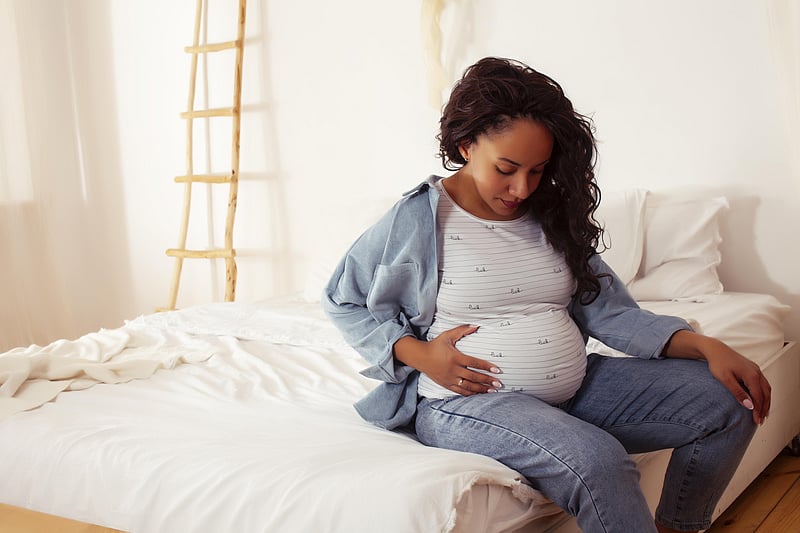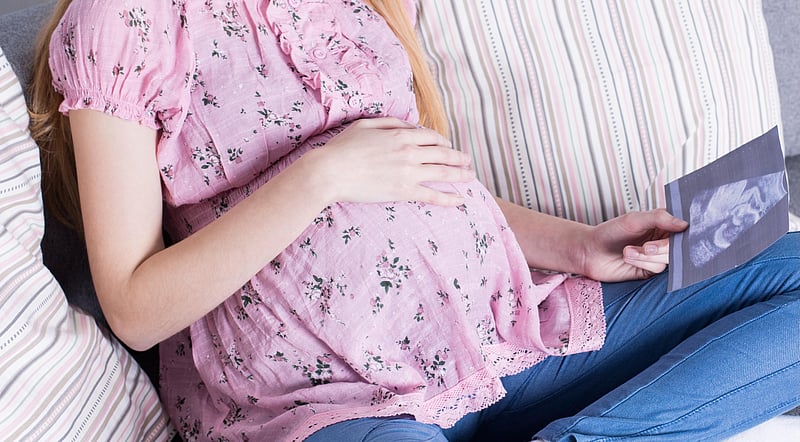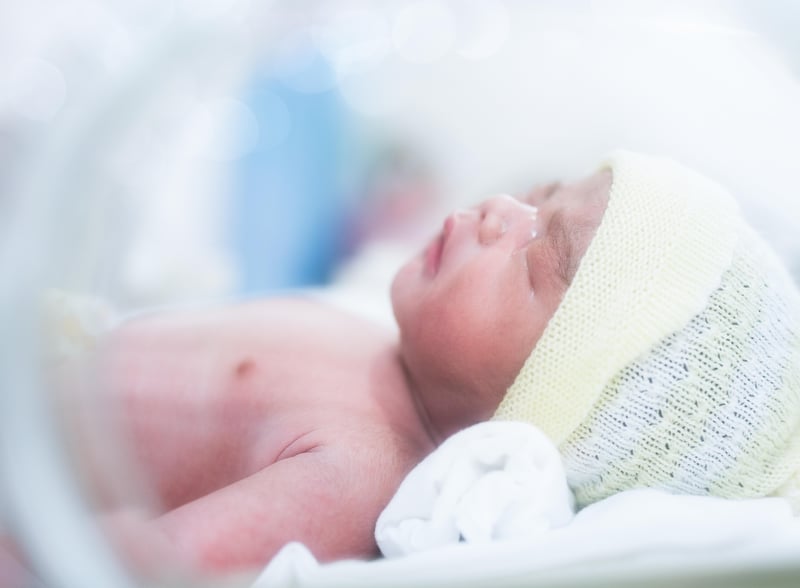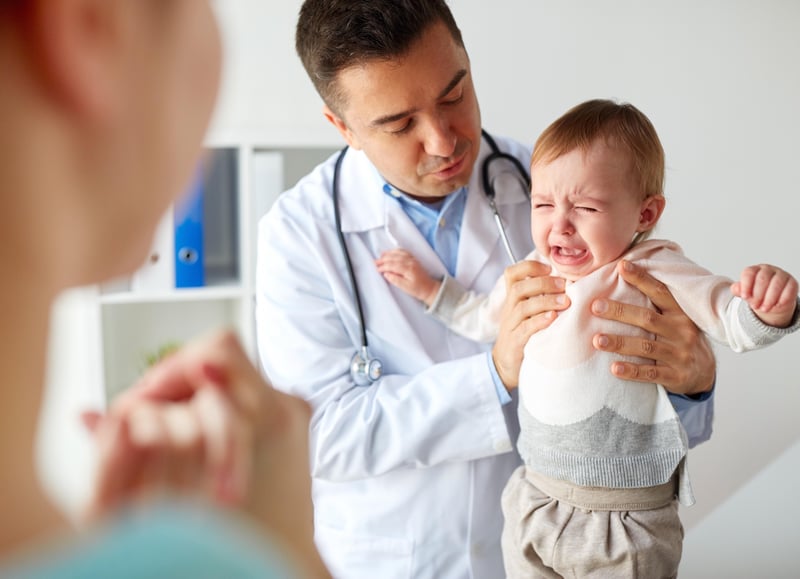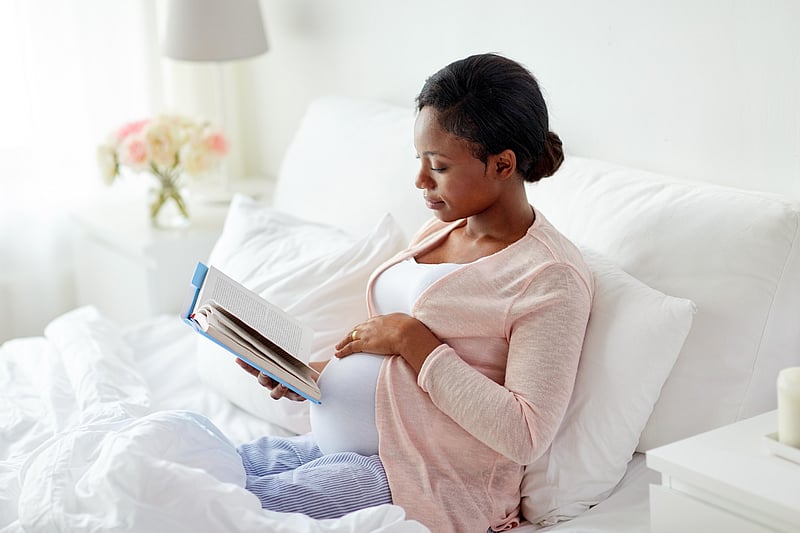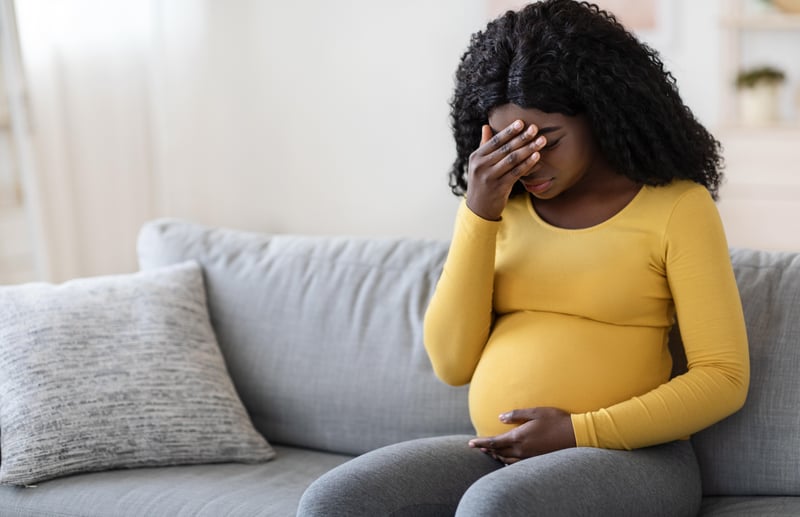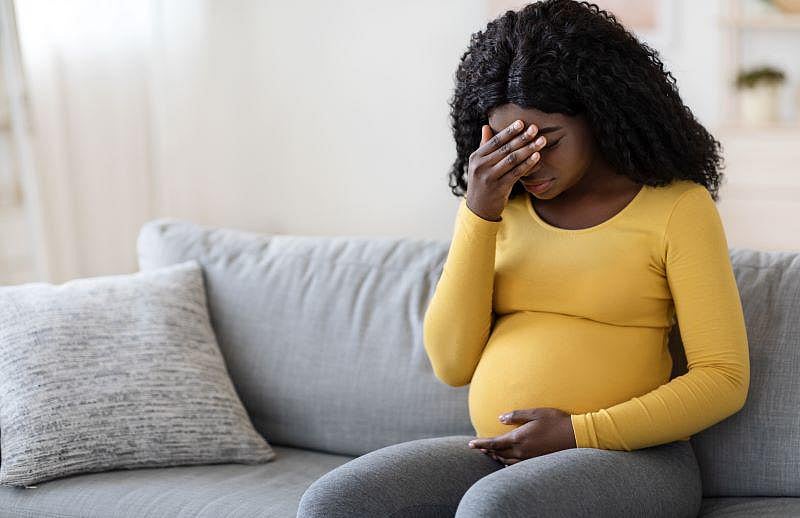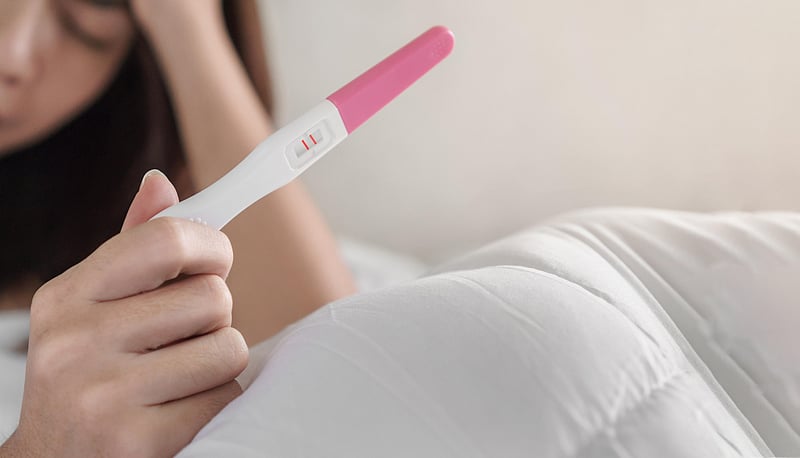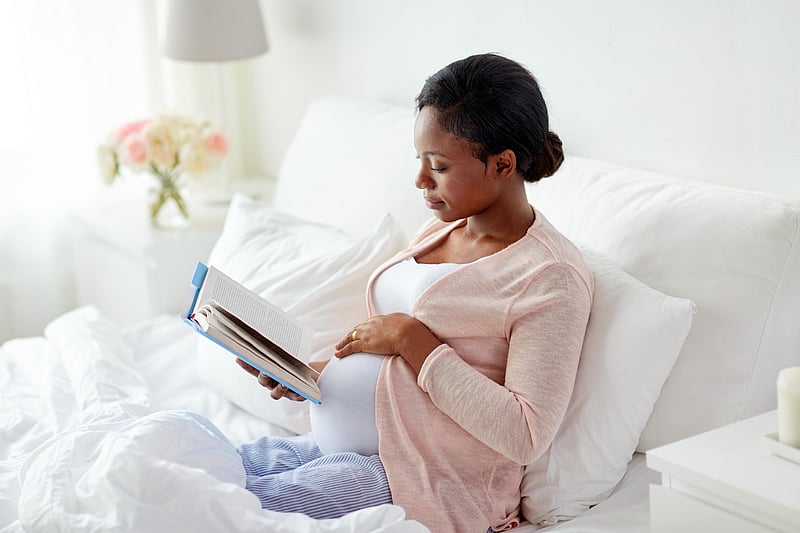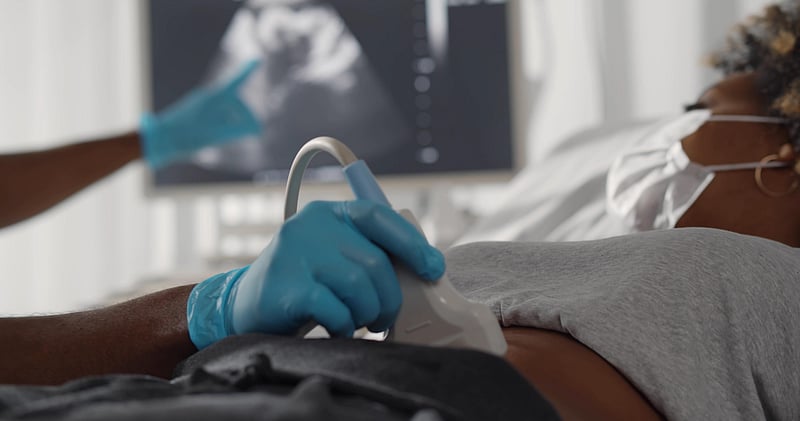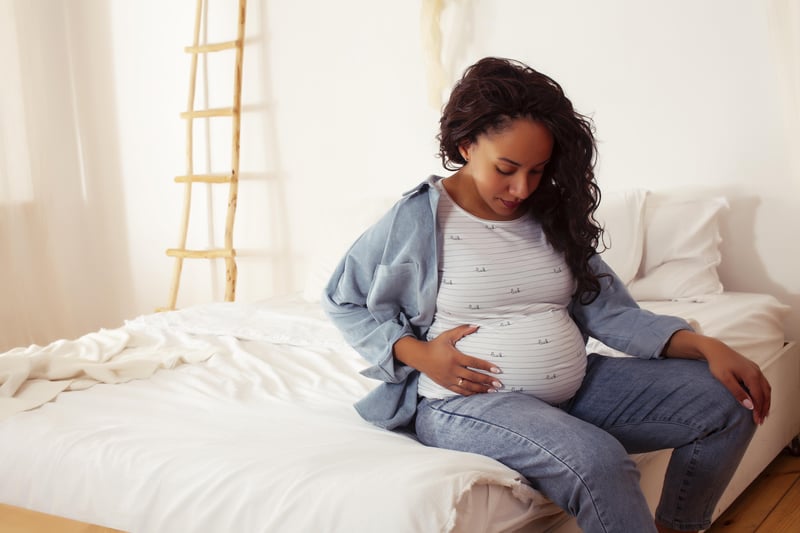Manténgase sano!
395 Resultados de su búsqueda "Pregnancy".
Resultados de noticias de salud - 395
Children exposed to the Zika virus may need more support as they start school, even if they were not diagnosed with Zika-related birth defects and congenital Zika syndrome (CZS), a new study suggests.
Children may still have differences in brain development, including those in thinking skills, mood and mobility, though researchers said some identified in the study may have been a measure ...
- Cara Murez HealthDay Reporter
- |
- November 30, 2022
- |
- Página completa
Researchers have found that nearly 3% of pregnancies in the United States were exposed to addictive opioid drugs.
The finding stems from an analysis of data from 21,905 pregnant women in what's dubbed the ECHO program (Environmental Influences on Child Health Outcomes), a federally funded effort to investigate the effects of early life exposures on several key areas of child health.
- Cara Murez HealthDay Reporter
- |
- November 25, 2022
- |
- Página completa
Many women experience back pain during pregnancy and a new study review suggests an ancient treatment can help.
Acupuncture provided significant relief of lower back and pelvic pain, according to an analysis of 10 trials from various parts of the world. The findings were published Nov. 21 in BMJ Open.
"Acupuncture significantly improved pain, functional status, and quality ...
- Cara Murez HealthDay Reporter
- |
- November 24, 2022
- |
- Página completa
U.S. stillbirth rates still need to be tackled at the local, state and national levels because efforts to reduce the risk have stalled, new research claims.
Racial disparities remain as well, with Black women more likely to experience stillbirth (the loss of a baby before or during delivery) than white women.
"Over the last 40 years, we have reduced certain risk factors for stillbi...
- Cara Murez HealthDay Reporter
- |
- November 15, 2022
- |
- Página completa
Getting vaccinated for COVID-19 while pregnant provides higher levels of antibodies for both mom and baby than catching the virus does, a new study finds.
When pregnant women received one of the two available mRNA vaccines, researchers found that the women had 10-fold higher antibody concentrations than those who were infected naturally.
The research team from Children's Hospital o...
- Cara Murez HealthDay Reporter
- |
- November 10, 2022
- |
- Página completa
When preteen children or very young teenagers become pregnant, they face higher rates of complications and a greater risk of winding up in the intensive care unit than older teens do, a new study finds.
The question about what happens when a young girl goes through pregnancy and delivery takes on more relevance after the U.S. Supreme Court overturned Roe v. Wade in June and subsequent abo...
- Cara Murez HealthDay Reporter
- |
- November 4, 2022
- |
- Página completa
A hormone therapy commonly used to prevent preterm births probably isn't effective, a new study reports.
Doctors have been prescribing vaginal progesterone treatments to help at-risk pregnant women delay delivery for as long as possible, researchers said.
But a new study involving more than 1,600 pregnant women with a history of early delivery revealed that vaginal progesterone had ...
- Dennis Thompson HealthDay Reporter
- |
- November 2, 2022
- |
- Página completa
Most pregnant women are told it's safe to have one cup of coffee a day because it won't trigger miscarriages or preterm deliveries, but new research suggests a surprising risk: Moms-to-be who consume caffeine, even in small amounts, may have shorter kids.
"The main takeaway is that even low exposure to caffeine during pregnancy was associated with shorter height in childhood," said study ...
- Denise Mann HealthDay Reporter
- |
- November 1, 2022
- |
- Página completa
Women who have autism are more vulnerable during pregnancy to depression and anxiety, according to a new British study.
That makes it imperative that effective mental health screening and support is available to help this group, said lead researcher Sarah Hampton, from the University of Cambridge.
...- Cara Murez HealthDay Reporter
- |
- November 1, 2022
- |
- Página completa
It's not high blood pressure, hemorrhage or sepsis that is more likely to kill pregnant women -- it's their husbands and boyfriends.
Homicide is a leading cause of death in pregnant women in the United States, and the risk is growing, researchers warned in a new study published Oct. 19 in the BMJ.
It's ...
- Cara Murez HealthDay Reporter
- |
- October 20, 2022
- |
- Página completa
Millions of women routinely check Instagram after giving birth, only to see posts by other new moms showing off how fast they got back into svelte shape.
Of course, photos like those can be a real downer for women who don't have the time or resources to lose pregnancy weight...
- HealthDay Reporter
- By Ernie Mundell HealthDay Reporter
- |
- October 6, 2022
- |
- Página completa
Frozen embryos appear to be linked with a significantly higher risk of dangerously high blood pressure for the woman in pregnancies achieved through in vitro fertilization, a major new study reports.
Expectant moms were 74% more likely to develop high blood pressure if her pregnancy resulted from a frozen embryo, as opposed to a fresh embryo or natural conception, according to analysis of...
- HealthDay Reporter
- By Dennis Thompson HealthDay Reporter
- |
- September 26, 2022
- |
- Página completa
Using marijuana after the first weeks of pregnancy is linked to mental health issues in children that linger well into early adolescence, a new study shows.
Exposure to cannabis after about five to six weeks of fetal development was associated with attention, social and behavioral problems, according to...
- HealthDay Reporter
- By Cara Murez HealthDay Reporter
- |
- September 13, 2022
- |
- Página completa
Research has suggested that kids born to moms who had the flu or another infection during pregnancy may be more likely to have autism, but a new study implies infection may not be the cause after all.
"We found no evidence to suggest that infections contracted by mothers during pregnancy would cause autism in the child," said study author Martin Brynge. He's a doctoral student in the glob...
- Denise Mann HealthDay Reporter
- |
- September 13, 2022
- |
- Página completa
The number of babies born with a virus that commonly causes birth defects may have dropped significantly during the COVID-19 pandemic, new research suggests.
That was true in Minnesota, the first state to start screening all newborns for congenital cytomegalovirus (CMV).
In the five years leading up to the pandemic, about 1 in every 200 babies was born with CMV. That dropped to 1 in...
- HealthDay Reporter
- By Cara Murez HealthDay Reporter
- |
- September 12, 2022
- |
- Página completa
While exposure to smog is a known risk factor for preterm birth and low-birth weight, new research suggests it also may heighten risk of COVID-19 infection for pregnant low-income women.
Scientists at Columbia University Mailman School of Public Health analyzed the COVID test results for more than 3,300 pregnant women in New York and also assessed their long-term exposure to
Many new parents have been jarred awake in the dead of night when they hear their baby let out that telltale barky cough that signals a bout of croup.
Until now, nothing was thought to stave off the disease in babies who are prone to it, but a new study has discovered that when women took hi...
- Denise Mann HealthDay Reporter
- |
- September 7, 2022
- |
- Página completa
Folic acid, a B vitamin that's used widely to fortify foods and lower the risk of birth defects, may carry a hidden risk for those who have to take huge quantities of it: A new study shows those folks were more likely to get COVID-19 and to die from it.
"We examined whether COVID-19 diagnosis and death were related to the large doses of folic acid -- five times the safe upper limit -- pre...
- HealthDay Reporter
- By Sydney Murphy HealthDay Reporter
- |
- September 6, 2022
- |
- Página completa
Pregnant women are exposed to toxic chemicals in dishware, hair coloring, plastics and pesticides that can heighten their risk of cancer and harm child development, a new study warns.
Gen Zers and millennials are about twice as likely to develop high blood pressure during pregnancy than women from the baby boom generation were, a new study finds. This includes conditions such as preeclampsia and gestational hypertension.
It's usually believed that the odds of developing high blood pressure during pregnancy rise with the age of the mother, but after taking age into acco...
- HealthDay Reporter
- By Steven Reinberg HealthDay Reporter
- |
- August 29, 2022
- |
- Página completa
A new and inexpensive same-day test could help pregnant women learn if their developing fetus has genetic problems that increase their risk of miscarriage.
The Short-read Transpore Rapid Karyotyping (STORK) test can detect extra or missing chromosomes using samples collected from standard prenatal tests like
Using a lower threshold to diagnose pregnancy-related diabetes does not seem to reduce the risk of having a big baby, on average -- but some women do benefit, a new clinical trial suggests.
Gestational diabetes is diagnosed when a pregnant woman's blood sugar levels are abnormally high. The condition can ha...
- Amy Norton HealthDay Reporter
- |
- August 18, 2022
- |
- Página completa
Pregnant women with epilepsy battle anxiety and depression more often than their peers who aren't pregnant or don't have epilepsy, a new study reveals.
"The good news is we did not find that pregnant women with epilepsy were any more likely to have episodes of major depression than the other two groups," said st...
- HealthDay Reporter
- By Cara Murez HealthDay Reporter
- |
- August 18, 2022
- |
- Página completa
The most popular COVID-19 vaccines are safe to use in pregnancy, a large, new Canadian study has concluded.
About 4% of pregnant women given an mRNA vaccine had a signif...
- HealthDay Reporter
- By Dennis Thompson HealthDay Reporter
- |
- August 15, 2022
- |
- Página completa
Pregnancy significantly increases the odds of devastating outcomes from COVID-19, a new study confirms.
Complications from the virus to pregnant women can include heart attack, arrhythmias, heart failure and
Women who have inflammatory bowel disease (IBD) should work with a doctor to get it into remission before pregnancy, a new study indicates.
Researchers found that women with Crohn's disease and
Numerous studies have found discrimination can hurt aspects of human health.
Now, new research adds to that the impact of discrimination on the youngest humans by linking discrimination with a heightened risk of underweight and premature infants.
Maternal death rates amo...
- HealthDay Reporter
- By Cara Murez HealthDay Reporter
- |
- August 4, 2022
- |
- Página completa
President Joe Biden was poised to sign a new executive order on Wednesday that would make it easier for women to travel to another state to get an abortion.
This ...
- HealthDay Reporter
- By Cara Murez HealthDay Reporter
- |
- August 3, 2022
- |
- Página completa
Where you live may affect your fertility, a new study suggests.
People who live in economically deprived neighborhoods are about 20% less likely to conceive, compared to people from areas with more resources, researchers said.
Investments in deprived neighbo...
- HealthDay Reporter
- By Cara Murez HealthDay Reporter
- |
- August 3, 2022
- |
- Página completa
A Minnesota jury is expected to decide by the end of this week whether a woman's human rights were violated when a pharmacist denied her request to fill a prescription for emergency contraception, sometimes called the morning-after pill.
Though the case dates back to 2019, the issue is ...
- HealthDay Reporter
- By Cara Murez HealthDay Reporter
- |
- August 2, 2022
- |
- Página completa
Seeing their doctors via telehealth instead of in person during the COVID-19 pandemic appears to have been as good, and sometimes even better, for pregnant women and new moms.
Researchers from Oregon Health & Science University reviewed 28 randomized clinical trials and 14 observational studies that included more than 44,000 women. The goal was to determine the effectiveness and any harms...
- HealthDay Reporter
- By Cara Murez HealthDay Reporter
- |
- July 26, 2022
- |
- Página completa
Better have some savings stored up before you rush to the delivery room: A new analysis shows the average out-of-pocket expense for delivering a child in the United States is nearly $3,000, even if you're insured.
Other studies have looked at the costs for specific services, such as Cesarean sections versus vagina...
- Ellie Quinlan Houghtaling HealthDay Reporter
- |
- July 21, 2022
- |
- Página completa
A COVID-19 infection might put pregnant women at risk of premature birth, but only if they're in their last trimester, Israeli researchers report.
"The results are encouraging and reassuring that COVID-19 infection during pregnancy is not associated with any type of pregnancy loss," said Dr. Tal Patalon, head of the Kahn-Sagol-Maccabi Research and Innovation Center in Tel Aviv.
Her ...
- HealthDay Reporter
- By Ellie Quinlan Houghtaling HealthDay Reporter
- |
- July 21, 2022
- |
- Página completa
In light of the Supreme Court's recent ruling overturning Roe v. Wade, many ob/gyns around the country are welcoming a change that allows them to continue taking accreditation exams virtually.
The tests, typically hosted in Texas, had been held virtually during the pandemic but there had been plans ...
- HealthDay Reporter
- By Ellie Quinlan Houghtaling HealthDay Reporter
- |
- July 19, 2022
- |
- Página completa
Phthalates, chemicals that are typically used to strengthen plastics, are in millions of products people use every day, but a new analysis confirms their link to a higher risk for preterm births.
The largest study to date o...
- HealthDay Reporter
- By Ellie Quinlan Houghtaling HealthDay Reporter
- |
- July 14, 2022
- |
- Página completa
Preterm infants who are breastfed do better in school and are less likely to develop attention deficit hyperactivity disorder (ADHD), says a new study.
Preemies have a higher risk of doing poorly in math, reading and other academic skills, previous studies have shown. They're also at greater risk for ADHD.
But starting them off with lots of breast milk appears to blunt this risk an...
- HealthDay Reporter
- By Dennis Thompson HealthDay Reporter
- |
- July 13, 2022
- |
- Página completa
The U.S. Supreme Court's decision to overturn Roe v. Wade will limit cancer treatment options for pregnant women and put lives needlessly at risk, America's leading cancer societies warn.
About one in every 1,000 women who are pregnant will wind up being diagnosed wi...
- Dennis Thompson HealthDay Reporter
- |
- July 12, 2022
- |
- Página completa
For decades, birth control pills in the United States have only been available with a prescription, but an application filed Monday with the U.S. Food and Drug Administration for an over-the-counter pill might change all that.
The lates...
- HealthDay Reporter
- By Ellie Quinlan Houghtaling HealthDay Reporter
- |
- July 11, 2022
- |
- Página completa
For women who can't get pregnant because they don't have a uterus or the one they have no longer works properly, uterine transplants can indeed help these women become mothers, new research shows.
Of 33 women who received a uterus transplant...
- Denise Mann HealthDay Reporter
- |
- July 7, 2022
- |
- Página completa
Breast cancer survivors who would like to have a baby can take some reassurance from a new study that finds motherhood doesn't lower their future survival chances.
Moreover, survival rates were no worse in younger women, those who had not been pregnant before or those with
Death rates for U.S. pregnant women or those who had just delivered jumped sharply during the first year of the pandemic, new research shows.
While U.S. death rates increased overall by 16% in 2020, for pregnant and early postpartum women it was officially even higher, at 18%, according to U.S. National Center for Health Statistics data.
Yet, that's not the whole picture: Even high...
- HealthDay Reporter
- By Cara Murez HealthDay Reporter
- |
- July 4, 2022
- |
- Página completa
If a national abortion ban follows a Supreme Court ruling overturning the nearly 50-year-old Roe v. Wade decision, U.S. maternal deaths would likely increase by 24%, new research suggests.
That assessment, based on newly released 2020 data, is a 14% increase over an earlier estimate based on 2017 d...
- HealthDay Reporter
- By Cara Murez HealthDay Reporter
- |
- July 1, 2022
- |
- Página completa
Getting a COVID-19 vaccine during pregnancy can help protect both mother and baby.
But does it matter which vaccine or at what stage of pregnancy a woman receives her shots? New research suggests it does, and that getting immunized earlier in pregnancy may be better.
In t...
- HealthDay Reporter
- By Cara Murez HealthDay Reporter
- |
- June 30, 2022
- |
- Página completa
Shortly after news broke in May that Roe v. Wade was in danger of being overturned by the Supreme Court, internet searches for abortion pills surged, a new study shows.
On May 2, a leaked draft ruling indicated that the court was poised to strike down the 1973 ruling that guaranteed a woman's...
- Amy Norton HealthDay Reporter
- |
- June 29, 2022
- |
- Página completa
The U.S. Supreme Court's recent decision to overturn Roe vs. Wade and the resulting media coverage is likely causing anxiety for many people, including children.
On Friday, the high court's ruling on Dobbs v Jackson Women's Health Organization ostensibly kicked decisions about restricting or banning...
- Denise Mann HealthDay Reporter
- |
- June 28, 2022
- |
- Página completa
Most people have heard that women can experience depression after the birth of a child.
But the condition is not limited to moms: New dads can experience depression in the months after their baby is born, by all accounts an enormous life change. This can even happen simultaneously, and with consequences for each of them and their new baby.
To better understand these experiences, res...
- Cara Murez HealthDay Reporter
- |
- June 27, 2022
- |
- Página completa
The U.S. Supreme Court's decision to overturn a woman's right to have an abortion marks a "very dark day in health care" that will leave patients at risk and doctors afraid to act, leaders of the American College of Obstetricians and Gynecologists (ACOG) said Friday.
"It is a dark day indeed for t...
- Dennis Thompson HealthDay Reporter
- |
- June 27, 2022
- |
- Página completa
The U.S. Supreme Court issued a ruling on Friday that overturns the landmark 1973 Roe v. Wade decision guaranteeing a woman's right to abortion.
"The Constitution does not confer a right to abortion... and the authority to regulate abortion is returned to the people and their elected representatives," the high court said in its opinion on Dobbs v. Jackson Women's Health Organization.<...
- Dennis Thompson HealthDay Reporter
- |
- June 24, 2022
- |
- Página completa
A small preliminary study suggests that the health of an expectant mother's gums may affect her likelihood of a preterm birth.
The study compared oral inflammation and microbes in 33 women whose babies were born before 37 weeks of pregnancy, considered
The babies of women infected with COVID-19 during pregnancy may have developmental difficulties during their first year, a new study suggests.
Researchers found that pregnant women with COVID-19 were more likely to have preterm births and infants with developmental problems. The greatest risk was in the third trimester,



